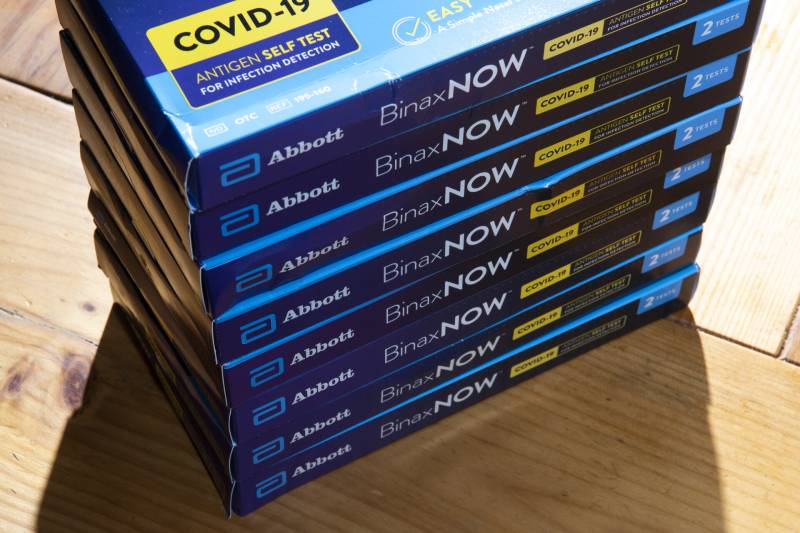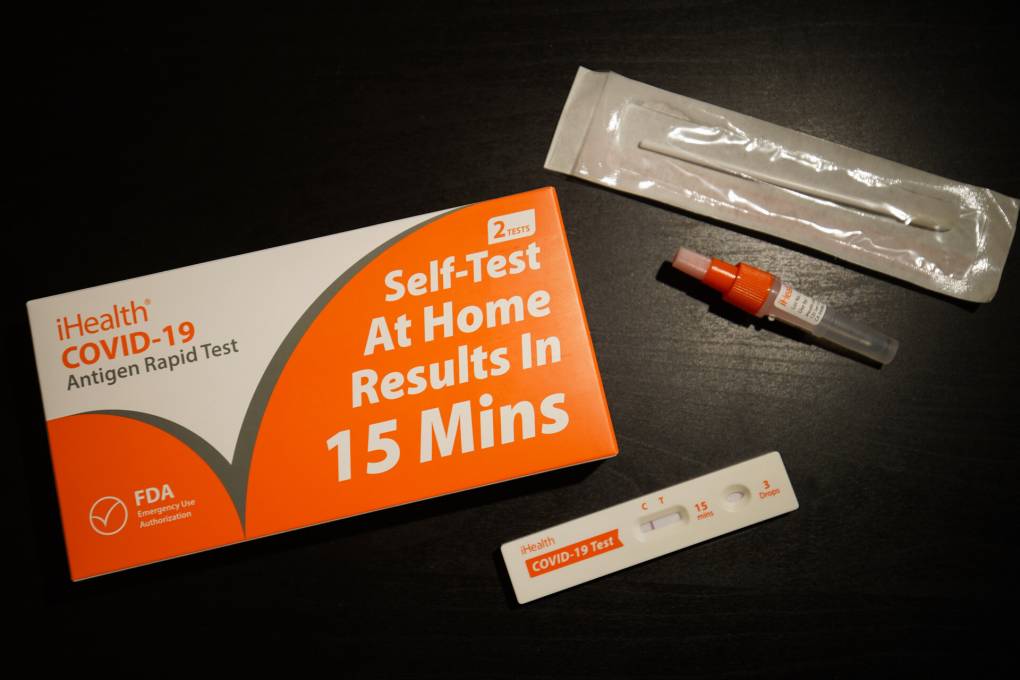Keep in mind that Blue Shield will only cover the cost of up to eight tests per month, max. You will not be reimbursed for the ninth test if you buy nine tests in one month. And if you are looking to get an in-person COVID-19 test done, for that, you will have to go to an in-network provider so the cost of the test is covered.
Anthem Blue Cross
Anthem Blue Cross has confirmed with KQED that it will continue to reimburse members with certain plans for at-home tests. You can buy the tests from any seller and are not limited to a specific network of test providers.
Keep in mind that there are some plans that do not qualify for reimbursements and based on the information that Anthem Blue Cross provided KQED, it seems that a member will only know if they qualify once they have filed a reimbursement claim.
To file a claim, first, make sure you still have the receipts from when you bought the tests because you will need to submit them later on. If you got the tests online, say through Amazon, you can find an electronic receipt when you go to your purchasing history. Once you have your receipts secured, head over to the Anthem Blue Cross member website. If you use the SydneySM Health app, you can use that too.
Once you’ve logged in, click on “Claims” and select “Submit a Claim,” and that’s where you will complete an electronic form with all the details from your purchase.
And remember that in California, this insurer goes by Anthem Blue Cross, and in other states, it is called Anthem Blue Cross and Blue Shield. Distinguishing between the two is especially important to make sure you get the right benefits that correspond to your insurance plan. For example, Anthem Blue Cross and Blue Shield are no longer reimbursing members for at-home COVID-19 tests in other states, but Anthem Blue Cross, as explained above, is still covering members in California for these tests.
Aetna
Aetna continues to cover the costs of up to eight at-home COVID-19 tests per month. This includes members with Aetna coverage through their employer and those on Medi-Cal.
To get reimbursed, policyholders should log into Aetna’s member website using their insurance plan credentials. Once logged in, click on “Submit a claim for reimbursement.” You’ll then see an electronic form that asks you for certain information, including the location and date of your purchase and a photo or scan of the receipt to verify your purchase.
If you are on a commercial plan and have Pharmacy Benefit coverage, there is a list of pharmacies that Aetna considers “in-network.” To make sure you get a reimbursement for the tests you buy, it’s probably best to buy them at an in-network pharmacy. If you receive Aetna coverage through Medi-Cal, you can buy tests from anywhere, regardless if the seller is in-network or not.
One last thing to keep in mind: Aetna members can currently request reimbursement through an online form. But that option will be discontinued at the end of this year. In 2024, the insurer says that you will need to call Member Services directly to request a reimbursement over the phone.
UnitedHealthcare and Cigna
KQED has repeatedly reached out to UnitedHealthcare and Cigna but has not received an answer from either insurer’s media team. We’ll be updating this story once we have new information.
What if I don’t have health insurance?
Remember, you don’t need health insurance to order four free at-home COVID-19 tests online from the federal government. Read more about how to order four free tests per residential address via USPS.
If you or someone in your community doesn’t have access to the internet to order these free tests, USPS says you can contact their helpline by calling 1-800-232-0233 (TTY 1-888-720-7489). You should also be prepared for potentially long wait times using this helpline.
Other ways of finding a free or low-cost COVID-19 test may still be available, using the CDC’s No-Cost Testing Locator or through your Bay Area county. These tests may be antigen tests or PCR tests. Read more about where to find a free or low-cost test near you.
KQED’s Carly Severn contributed to this story.
Tell us: What else do you need information about?
At KQED News, we know that it can sometimes be hard to track down the answers to navigate life in the Bay Area in 2023. We’ve published clear, helpful explainers and guides about issues like COVID-19, how to cope with intense winter weather, and how to exercise your right to protest safely.
So tell us: What do you need to know more about? Tell us, and you could see your question answered online or on social media. What you submit will make our reporting stronger and help us decide what to cover here on our site and on KQED Public Radio, too.

